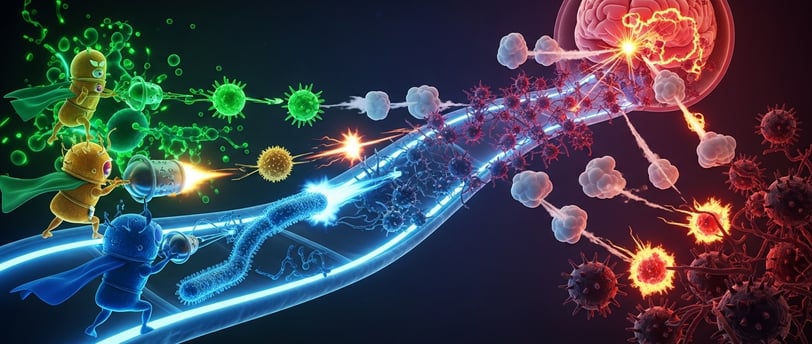How Gut Health May Hold the Key to Parkinson’s: The Gut-Brain Connection Explained
New research reveals the powerful link between your gut and brain—especially in Parkinson's. Could the key to managing symptoms begin in the gut?
GUT HEALTH
Pamela Hamilton
6/4/20252 min read


How Gut Health May Hold the Key to Parkinson’s: The Gut-Brain Connection Explained
Parkinson's disease (PD), a progressive neurodegenerative disorder, is traditionally associated with motor symptoms like tremors and rigidity. However, emerging research highlights the significant role of gut health in PD's onset and progression, emphasizing the intricate communication between our digestive system and brain.
Understanding the Gut-Brain Axis
The gut-brain axis refers to the bidirectional communication network connecting the gastrointestinal tract and the central nervous system. This complex system involves neural, hormonal, and immunological signaling pathways, allowing the gut and brain to influence each other's functions.
Gut Dysbiosis and Parkinson's Disease
Gut dysbiosis, an imbalance in the gut microbiota, has been increasingly linked to PD. Studies have shown that individuals with PD often exhibit reduced microbial diversity and an overrepresentation of pro-inflammatory bacteria. This imbalance can lead to increased intestinal permeability, commonly known as "leaky gut," allowing harmful substances to enter the bloodstream and potentially trigger neuroinflammation.
Research indicates that such microbial imbalances may precede the onset of motor symptoms by years, suggesting that gut health could play a role in the early stages of PD development .
💚 Feeling inspired?
Grab the Radiant Rejuvenation Gut Health Quote Pack—30 beautiful quotes, Canva templates, and a bonus mini guide to help you share your light.
👉 Click here to get yours now
The Role of Alpha-Synuclein
A hallmark of PD is the accumulation of alpha-synuclein proteins in the brain. Interestingly, these misfolded proteins have also been detected in the enteric nervous system, which governs the gastrointestinal tract. It's hypothesized that alpha-synuclein pathology may originate in the gut and travel to the brain via the vagus nerve, contributing to PD progression .
Neurotransmitters and Gut Health
The gut microbiota plays a crucial role in synthesizing neurotransmitters, including gamma-aminobutyric acid (GABA), which is essential for regulating neuronal excitability and muscle tone. Alterations in gut bacteria can disrupt GABA production, potentially impacting motor control and contributing to PD symptoms.
Therapeutic Implications
Understanding the gut-brain connection opens new avenues for PD treatment. Interventions targeting gut health, such as probiotics, prebiotics, dietary modifications, and fecal microbiota transplantation (FMT), are being explored for their potential to restore microbial balance and alleviate PD symptoms .
Conclusion
The interplay between gut health and Parkinson's disease underscores the importance of a holistic approach to understanding and managing neurodegenerative disorders. By focusing on the gut-brain axis, researchers and clinicians can develop innovative strategies to detect, prevent, and treat PD more effectively.
